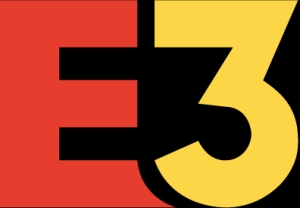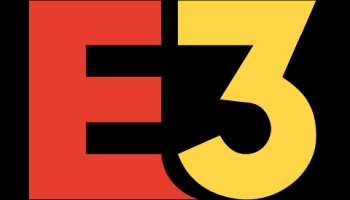 The future of the E3 Expo is once again on shaky ground.
The future of the E3 Expo is once again on shaky ground.
The Electronic Entertainment Expo split off from the Consumer Electronics Show in 1995 and originally served as a place for the game industry to show retailers what they had in development for the holiday shopping season. But mainstream media attention soon followed, allowing the event to grow in size and spectacle over the next decade.
After a 2007 rebrand as the slimmed down “E3 Media and Business Summit” failed, the event continued to hum along as an important date on the Summer calendar for yet another decade. Even after the introduction of a wide range of digital showcases from the major publishers (including all three consolemakers), as well as the rise of player-focused events such as PAX, E3’s importance as a one-stop-shop for major announcements is only somewhat on the wane.
But that hasn’t stopped game journalists from musing about the future of E3, even before the 2020 event was canceled in the face of the coronavirus pandemic…
 Insert Quarter is a glimpse into gaming’s past, present, and future through an exploration of historical, retrospective, and contemporary reporting.
Insert Quarter is a glimpse into gaming’s past, present, and future through an exploration of historical, retrospective, and contemporary reporting.
In addition to his own opinion on E3’s future, Mike Williams gave the microphone to a handful of publishers and developers last Spring for USgamer. While some saw the logic in pulling out of E3 for digital events or consumer shows, others recognized the importance of bringing together the entire game industry for a week of blockbuster announcements:
Some developers still believe in E3 as a show. Prior to the event being canceled, publishers like Bethesda, Ubisoft, Sega, Capcom, Square Enix, and Warner Bros. still had booths on the showfloor. And even if they weren’t on the showfloor, the timing of E3 is important. The industry converges on a single space for a week in June, a perfect time to capture the eyes of the collective press and the hearts of a community that’s waiting for bombshell announcements.
Do We Still Need E3? Developers Across Gaming Weigh In
After the cancellation of E3 2020 became official and a slew of digital events popped up in its place, this need for a focal point for the industry’s announcements became very clear to GamesIndustry.biz‘s Christopher Dring:
So do we really need E3? Do we need physical events at all?
Yes. Yes we do. Numbers be damned. This year’s series of digital events have been prolonged, messy, complicated and inconsistent, scattered among different schedules, media outlets and, well, Geoff Keighley. Publishers, developers and platform holders are tasked with keeping all of their big digital partners happy, which means it’s been almost impossible to keep track of it all. There’s no single online equivalent to the Los Angeles Convention Center. There are dozens of them.
I really want E3 back
As the all-digital E3 2021 approached, the industry wasn’t any closer to figuring out if it even needed E3. This push-and-pull between the moderate success of 2020’s digital events and the desire for an “announce-athon” inspired Imogen Beckhelling to transcribe her thoughts on the subject for Rock Paper Shotgun:
E3 is coming back. It skipped 2020 due to the coronavirus pandemic, and will grace our screens in 2021 as an all-digital event. Last year was the first time since 1995 that an E3 didn’t take place, so we saw what would happen if the event no longer existed… and life went on. Game companies and media outlets took their plans for the big conference and made them their own, hosting live streams and releasing demos digitally all throughout the summer. While a lot of it was a summer mish-mash of shows, we still got all the announcements that would’ve been at E3, so I ask you: do we still need E3?
Do we still need E3?
While it seems like many players and pundits would prefer an E3 Expo that gives us all the announcements in a single week, after this year’s event it’s very apparent that that version of the show is gone forever. But Rob Fahey of GamesIndustry.biz argues that our new reality will be even stranger, with publishers dropping megaton-type announcements at any time throughout the year:
E3 2021 more or less accomplished what it set out to do. The show was, in the end, little more than some thin connective tissue between independent events organised by major publishers and platform holders, but perhaps that was enough.
The result created some buzz and some spectacle, focusing media attention and giving consumers who tuned in to the various feeds a sense that this was an exciting week for games news.
[…]
E3 was also, however, notably incomplete.
E3 is no longer a clear lens on the industry
All that said, the future of the E3 Expo will always rest on the whims of publishers and developers, and as Patrick Shanley discovered for The Washington Post’s Launcher, there are some wildly different opinions out there about how a company should announce a major new game:
Still, it served its purpose. Massive gaming companies like Xbox and Nintendo enjoyed the attention of millions of viewers for their presentations, and received praise for their showcases. With Los Angeles Mayor Eric Garcetti opening the 2021 E3 stream by welcoming the event back to the city for 2022, the question now centers on the continued evolution of the event. What will E3 look like moving forward?
For years, E3 has been gaming’s biggest event. Is that still true?
So where does that leave us? Pretty much right where we started. The E3 Expo is clearly losing ground to digital presentations (such as Nintendo Direct, Sony’s State of Play, and Geoff Keighley’s Summer Game Fest) and player-focused conventions (such as PAX). But publishers and developers also love the idea of an event that makes the game industry the center of worldwide attention for a week.
I guess all we can really say is that the E3 Expo is coming back in 2022. What happens after that is a mystery.

